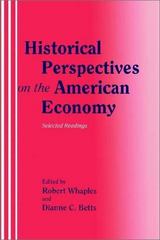Question
1.Read the following excerpt from an article written by Marc Santora and published in the New York Times. Watching the dazzling United States Open play
1.Read the following excerpt from an article written by Marc Santora and published in the New York Times.
Watching the dazzling United States Open play of Rafael Nadal at Arthur Ashe Stadium on Monday, the majestic Manhattan skyline in the background could inspire even the most casual tennis player to grab a racket and head out to the park. However, for many city residents, the cost of playing on a public court is now simply too steep.
When the city's Department of Parks and Recreation announced rate increases in 2011 - to $200 from $100 for a seasonal permit to play on any of the city's 600 courts - officials expected to see a decline in participation. But people have been abandoning the courts at a far higher pace than predicted, according to a report released on Thursday by the Independent Budget Office, the city's fiscal watchdog.
The city sold nearly half as many permits in 2012 as it did in 2010 - a drop to 7,265 from 12,774.
The higher fees at the facilities were meant to generate more revenue for the city, but with so many people balking at the prices, income was lower than projected.
The city expected it would take in an extra $6.3 million in 2012 after the increases took effect, according to the report, but the revenue grew by just $1.1 million.
"For a relatively small amount of savings for the city, this is a really dramatic impact for thousands of people," said Holly M. Leicht, executive director of New Yorkers for Parks, a nonprofit advocacy group.
Recreation centers have been particularly hard hit by the fee increases, and the city fell $4 million short of its projected revenue of $8.8 million.
In the first year they took effect, annual memberships for the city's 35 recreation centers fell 51.9 percent, to 46,000 in 2012 from roughly 96,000 in 2011, according to the report.
Some players might find the courts still crowded, a phenomenon that could stem in part from no change to the fee for those 62 and older, who still pay $20, and for those 17 and younger, who pay $10.
The parks department also sells single-play permits, the cost of which rose to $15 in 2011 from $7 in 2005.
"We have gotten more single complaints about the tennis fee increases than almost any other issue," said Geoffrey Croft, the president of the nonprofit advocacy group NYC Park Advocates and a casual tennis player.
"These courts were built with public dollars and they should be free or close to free," Mr. Croft said. "What is happening is people are either not playing or they are sneaking onto the courts."
a."When the city's Department of Parks and Recreation announced rate increases in 2011, to $200 from $100 for a seasonal permit to play on any of the city's 600 courts - officials expected to see a decline in participation."Using your economics knowledge, explain why the city officials expected to see a decline in participation after the rate increase.
b."The city sold nearly half as many permits in 2012 as it did in 2010 - a drop to 7,265 from 12,774." Knowing this decrease in quantity and the rise in price, calculate the price elasticity of demand for tennis court permits in New York City.
c."The city expected it would take in an extra $6.3 million in 2012 after the increases took effect, according to the report, but the revenue grew by just $1.1 million."Why would knowing the price elasticity of demand have helped the city make a better estimate when it comes to revenue?
Step by Step Solution
There are 3 Steps involved in it
Step: 1

Get Instant Access to Expert-Tailored Solutions
See step-by-step solutions with expert insights and AI powered tools for academic success
Step: 2

Step: 3

Ace Your Homework with AI
Get the answers you need in no time with our AI-driven, step-by-step assistance
Get Started


